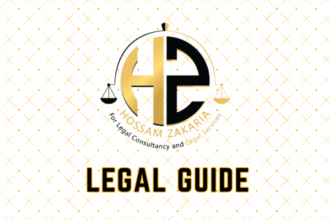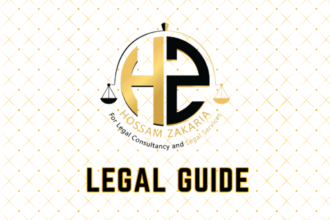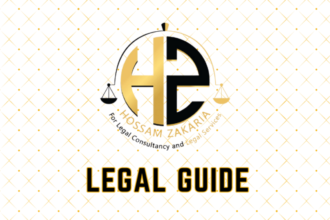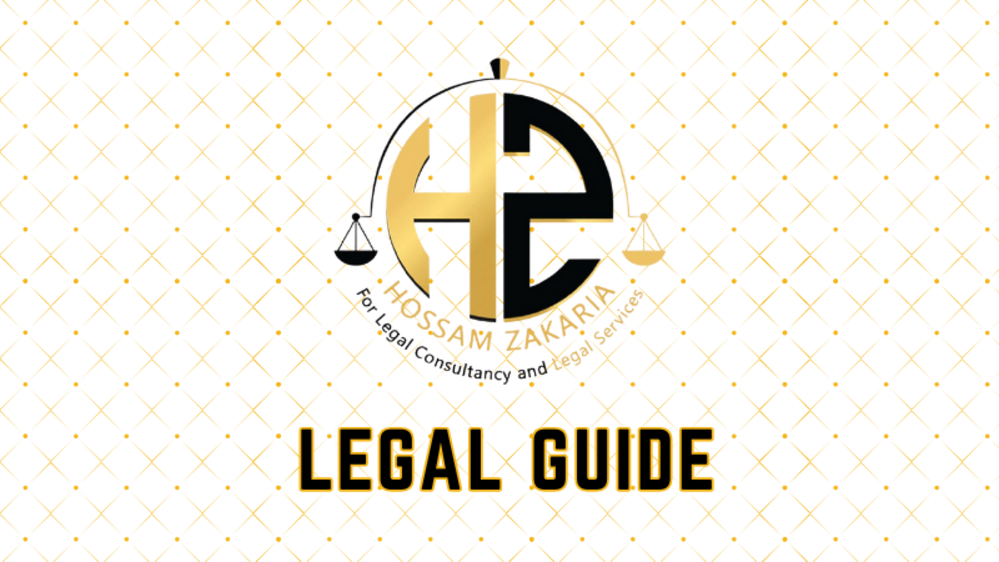Introduction
As cross-border business between the UAE and Qatar intensifies, private jet and charter operations are increasingly key to executive mobility, supply chain efficiency, and high-value business transactions. The regulatory landscape in Qatar—distinct from the UAE yet closely intertwined by airspace, commercial, and customs agreements—demands precise compliance by UAE-based operators and corporate clients. Notably, recent legal updates have reshaped operational licensing, safety standards, taxation, and liability insurance requirements, with new bilateral protocols introduced following regional diplomatic realignment since 2021.
This guide presents a consultancy-grade analysis of the current legal requirements, compliance challenges, and best practices for UAE businesses seeking to operate, charter, or utilize private jets within Qatar. Drawing on authoritative sources, including the UAE Federal Legal Gazette, Ministry of Justice publications, and the Qatari Civil Aviation Authority (QCAA), the article offers actionable insights, risk mitigation strategies, and detailed compliance comparisons relevant to UAE executive, legal, and HR professionals navigating these cross-border aviation ventures.
Table of Contents
- Overview of Regulatory Environment
- Licensing and Permitting for Private Jet Operations
- Taxation and Customs Compliance
- Crew and Passenger Immigration Requirements
- Insurance and Liability Considerations
- Operational Compliance and Safety Standards
- Comparison Between Old and New Laws
- Case Studies and Practical Applications
- Risks of Non-Compliance and Mitigation Strategies
- Conclusion: Strategic Compliance for UAE Businesses
Overview of Regulatory Environment
The regulation of private jet and charter operations in Qatar is governed primarily by the QCAA, with close reference to ICAO (International Civil Aviation Organization) standards. For UAE businesses, two legal frameworks are relevant:
- UAE Legal Framework: Federal Law No. 20 of 1991 (UAE Civil Aviation Law), as amended by Federal Decree-Law No. 8 of 2020 and Cabinet Resolution No. 16 of 2022.
- Qatar Legal Framework: Law No. 15 of 2002 on Civil Aviation and QCAA Circulars, including key amendments up to Circular 06/2023, affecting private and non-scheduled flight operations.
Following the Al-Ula Declaration in 2021, cross-border operations saw a resurgence, but new compliance regimes brought stricter criteria for air operator certificates (AOCs), security screening, and customs declarations. For UAE operators, legal due diligence now extends to bilateral air services agreements and the specific approvals needed from Qatari authorities.
Licensing and Permitting for Private Jet Operations
Legal Basis and Recent Updates
Private operators from the UAE must secure an AOC or Private Operator Certificate (POC) recognized by both the UAE General Civil Aviation Authority (GCAA) and the QCAA. Updates effective from 2023 (QCAA Circular 06/2023) include:
- Mandatory double-notification of Qatar-bound flights at least 72 hours in advance
- Requirement for reciprocal licensing recognition for non-scheduled UAE aircraft
- Enhanced scrutiny of beneficial ownership and aircraft wet-lease arrangements
These requirements apply to:
- UAE-registered charter services seeking third-country commercial permissions
- Corporate jet operations for business travel or asset relocation
| Requirement | UAE (GCAA) | Qatar (QCAA) | Cross-Border Considerations |
|---|---|---|---|
| AOC/POC Validity | Must hold UAE AOC, POC, or Charter Permit | Additional QCAA approval required | Double approval with prior clearance |
| Pilot Licensing | UAE ATPL/CPL mandatory | ICAO-standard licenses accepted | Must be validated by QCAA for private flights |
| Route Permissions | Required for non-scheduled flights | Filing via QCAA e-portal for each flight | Both routes and slots must be pre-approved |
Consultancy Tip: Seek legal review of lease, joint venture, or management agreements involving aircraft to avoid hidden licensing pitfalls or regulatory disqualification in transit through Doha.
Taxation and Customs Compliance
Import Duties, VAT, and Fee Structures
Both the UAE and Qatar operate under their respective customs and tax regimes:
- Qatari Customs Law (Law No. 40 of 2002) mandates import duties for non-scheduled UAE aircraft not covered by a bilateral exemption.
- VAT: While the UAE enforces a 5% VAT under Federal Decree-Law No. 8 of 2017, Qatar is yet to fully implement a broad-based VAT regime. However, commercial charter operators may face import-based taxes on aircraft parts, maintenance, or in-flight retail provisions.
- Landing Fees: QCAA imposes landing, parking, and navigation charges, updated in Circular 03/2022. Payment is mandatory prior to departure, with penalties for late settlement.
UAE businesses must track the status of tax treaties or Memoranda of Understanding (MoUs) between the two countries, as exemptions for temporary admission of aircraft may be available but are not automatically granted, especially for commercial charters.
Customs Declaration Process
- Pre-register aircraft and cargo (if applicable) via QCAA electronic portal.
- File all manifests and crew/passenger lists at least 24 hours before arrival.
- Declare any high-value goods or restricted items, complying with both Qatari and UAE export control laws (see Federal Law No. 13 of 2007).
Compliance Challenge: Recent enforcement sweeps have seen severe penalties for failure to declare crew assets, in-flight high-value cargo, and documentation discrepancies between UAE and Qatari manifests.
Crew and Passenger Immigration Requirements
While GCC nationals generally benefit from streamlined entry procedures, non-UAE crew and passengers must secure:
- Valid visas per Qatari Ministry of Interior regulations (Law No. 21 of 2015 on Entry and Exit)
- Proof of negative security screening, particularly for crew (QCAA Circular 09/2022)
Crew with UAE-issued GCAA licenses may require additional background checks. Recent updates mandate biometric registration on arrival for certain nationalities, and all operators must maintain a digital log of crew entries and exits for audit purposes.
Practical Guidance: UAE operators should pre-clear all crew and passengers to avoid mid-flight diversions or ground delays at Doha Hamad International Airport. Automated crew rosters are recommended to facilitate rapid compliance audits.
Insurance and Liability Considerations
Mandatory Insurance Policies
UAE-based operators must carry:
- Third-party liability insurance compliant with UAE GCAA CAR Part V and QCAA rules
- Passenger, cargo, and hull insurance as specified by Qatar’s Law No. 15 of 2002
Recent updates (QCAA Circular 04/2023) set out minimum coverage thresholds—typically SDR 300,000 per passenger for liability, and aircraft hull coverage based on fair market value. Proof of insurance must be presented at each port of entry, with regular verification against QCAA records.
| Insurance Type | UAE GCAA | Qatar QCAA | Notes |
|---|---|---|---|
| Third-Party Liability | Mandatory, GCAA-approved | Mandatory, must match or exceed GCAA level | Policy jurisdiction must include Qatari airspace |
| Hull Insurance | Based on asset valuation | Market value, proof of annual renewal | Policy must be bilingual (Arabic/English) |
| Passenger Liability | SDR 300,000 per seat | Equivalent or higher as per Circular 04/2023 | Coverage for unscheduled landings required |
Best Practice
Operators are advised to conduct a dual-jurisdiction policy review, confirming all certificates are up-to-date and reflecting minimum requirements. For high-profile charters, obtain excess liability coverage and ensure rapid claims protocols are in place should an incident occur in Qatar.
Operational Compliance and Safety Standards
ICAO and Local Safety Standards
Both UAE and Qatari regulators require adherence to ICAO Annexes for flight operations, safety management, and crew fatigue. Specific Qatari rules (Circular 01/2022) emphasize:
- Rigorous pre-flight maintenance and safety system checks (SMS/SOPs)
- Strict crew duty time and rest period monitoring
- Real-time reporting of deviations or technical incidents to QCAA and, where relevant, to GCAA
Inspection Regime: Both in-ramp (Doha) and departure (UAE) ramp checks are now routine for non-Qatari operators. Failing a ramp check can result in flight bans, operator blacklisting, or substantial fines under Qatar’s Administrative Penalty Law (Law No. 17 of 2020).
Operational Readiness Checklist
UAE firms should implement the following operational review for each charter:
| Requirement | Verified? | Responsible Party |
|---|---|---|
| AOC/POC Valid | [ ] | Flight Operations Manager |
| QCAA Flight Permit | [ ] | Compliance Officer |
| Passenger Manifests Filed | [ ] | Cabin Crew/HR |
| Insurance Documents Ready | [ ] | Legal Counsel |
| Immigration Visas Secured | [ ] | Travel Department |
Visual suggested: A process flow diagram of charter approval and operational readiness stages, to be included for internal policy manuals.
Comparison Between Old and New Laws
Table: Pre-2021 vs. 2023 Regulatory Criteria for Private Jet Charters
| Aspect | Pre-2021 | 2023 & Beyond |
|---|---|---|
| Flight Permissions | Simplified, restricted during 2017–2021 embargo | Full restoration plus additional security checks |
| Customs/VAT | No VAT in Qatar, UAE VAT less strictly enforced | Stringent UAE VAT and sporadic enforcement of Qatari import duties |
| Insurance | Basic liability cover accepted | High minimums, bilingual policies, SDR-based valuation |
| Operational Audit | Sporadic ramp checks | Regular, detailed audits for all non-Qatari operators |
Professionals must appreciate that the re-opening came with both opportunity and a more sophisticated regulatory ecosystem. Mistakes or legacy processes carried over from earlier years may expose UAE operators to fresh liabilities post-2021.
Case Studies and Practical Applications
Case Study 1: Corporate Jet Lease from UAE Entity
A UAE-based investment firm charters a Bombardier Global 6000 for board meetings in Doha. Despite holding GCAA-compliant insurance, their policy does not name Qatar as a jurisdiction, resulting in a denied landing permit and last-minute re-routing. Lesson: Meticulous review of insurance and compliance paperwork, with explicit reference to Qatari operations, is critical even for one-off flights.
Case Study 2: Crew Visa Oversight
A UAE-registered aircraft with a multinational crew arrives in Qatar; one crew member holds an expired UAE GCAA document and fails Qatar’s digital bio-registration. The operator faces administrative penalties and is denied further Qatari permits until corrective measures are documented. Recommendation: Regular legal audits of all crew credentials minimize risk of flight disruptions or operator blacklisting.
Case Study 3: Customs Declaration Discrepancy
A company’s in-flight catering shipment contains undeclared high-value electronics intended as client gifts. Qatari customs detain the aircraft and initiate proceedings for customs evasion per Law No. 40 of 2002.Risk: Even minor lapses in declaration can halt operations and attract severe fines or criminal investigation.
Risks of Non-Compliance and Mitigation Strategies
Risks
- Aircraft Detention: QCAA may impound non-compliant aircraft.
- Financial Penalties: Fines can exceed QAR 500,000 for insurance or customs violations.
- Operator Blacklisting: Repeat violations result in revocation of permissions for all GCC operations.
- Director Liability: UAE directors may be held personally liable for failing to implement due diligence on cross-border charters.
Mitigation and Compliance Strategies
- Adopt a standardized “legal triage” for all charter flights—review legal checklists, insurance policies, and immigration processes every quarter.
- Secure local legal representation and customs brokers in Qatar to expedite resolution of issues.
- Implement digital compliance management tools to track filings, permits, and renewals.
- Train internal teams on recent legal updates and require annual compliance certifications.
Visual suggested: Compliance dashboard screenshot for tracking permits and operational readiness indicators.
Conclusion: Strategic Compliance for UAE Businesses
The evolving legal framework for private jet and charter operations in Qatar requires UAE businesses to implement advanced compliance, legal, and operational protocols. Since 2021, new bilateral airspace rights, insurance minimums, and customs standards have increased the complexity—and the legal exposure—of cross-border private flights.
For UAE executive and legal teams, proactive legal review, diligent crew and document management, and precise adherence to QCAA and GCAA protocols are essential. The forward trend is clear: as Gulf economies integrate further, enforcement will continue to tighten. Organizations that invest in robust compliance structures—supported by regular legal audits and training—will mitigate risks, unlock business opportunities, and maintain flawless operational reputations.
Best Practice Summary: Build a dedicated “Aviation Compliance Task Force” within your UAE business, collaborate with specialized legal consultants, and treat cross-border charter compliance as a critical element of corporate governance. Such strategies ensure not only efficient mobility, but also regulatory resilience in a changing legal environment.



